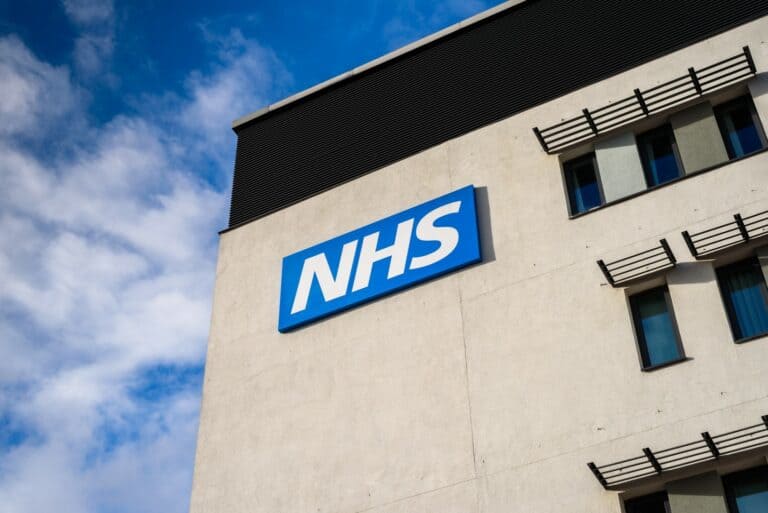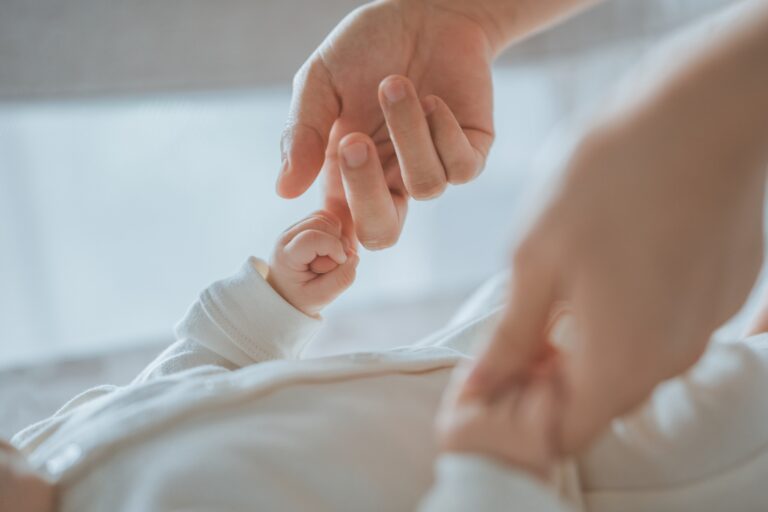Dads, Doctors and Depression
When we talk about post-natal depression, we often think of mothers. This is a fair assumption to make as the mother carries the child and physically gives birth. To be precise, 1 in 5 women developed mental health problems during pregnancy or in the first year after childbirth.’[1] But how many of you knew that dads suffered from post-natal depression too?
I want to discuss this topic because of my exposure as a Child Brain Injury lawyer. In bringing claims for children with acquired brain injuries, we also meet their dedicated parents who not only care for their children 24/7 but have also witnessed the traumatic and unexpected event of their child being born in poor condition. The focus is usually on the mother and child for obvious reasons but recently, I have heard about the experience of dads at hospital and think that this is something we need to discuss. Fathers, often on the perimeter in a medical emergency, can suffer long-lasting damage because of what they witness. We need to remember that mental health does not discriminate and that support for all members of the family is crucial to avoid adding to what could already be a psychologically harmful event.
The Facts
- In the 2013/2014 National Childbirth Trust research, a staggering 38% of first-time fathers in the UK said that they were concerned about their mental health.[2] This includes 10% of first-time fathers that experienced post-natal depression, sometimes called ‘paternal depression’.
- Paternal depression can occur antenatally and postnatally, like maternal post-natal depression
- Fathers appear to be more likely to suffer from depression three to six months after their baby is born as opposed to immediately after birth
- Their symptoms are more likely to present as anxiousness or anger rather than sadness
- Non-depressed fathers who are substantially involved with their infants can shield them from the worst effects of new mothers’ depression.[3]
- In the UK, all women are screened for depression in their early antenatal check-ups and postnatal visits[4]. There is no corresponding NICE guideline for men[5].
Men are still suffering from the bravado and maschismo of the past, so dare I say, this figure is for post-natal depression is probably higher as men are less likely to seek medical help than women. Clearly, it is very real and very concerning. 1 in 10 dads suffer with paternal depression (not to be confused with ‘baby blues’, which is generally short-lived and less intense). Given that 1 in 5 new mums suffer with PND too, it must be very difficult for two parents to cope when both feeling the psychological, emotional and social strain of depression. Without being too simplistic about the solution, both men and women need to recognise each other’s burdens with mutual support and openness for what is a widespread issue. As parental depression often affects the children, awareness of the symptoms, early intervention and reduced stigma are key to keeping the family unit healthy.
Paternal Depression following a Child Brain Injury
There are numerous triggers to paternal depression, as with all depression, however, in my line of work, often when we speak to fathers who are experiencing psychological difficulties, it is because of a traumatic event (which may have been negligent) leading up to or during the birth of their child.
Two of the people that they love the most are in a dangerous situation which threatens their physical safety. Dads that we speak to report feeling ‘helpless’, ‘powerless’, ‘stuck in limbo’ and ‘torn’. They witness every moment of a horrifying event and they are totally unable to influence the outcome. They rely on medical staff to keep them involved, updated and empowered. However, when matters escalate and emergency care needs to be administered to their partner, the majority of fathers feel like a second class citizen during the birth of their own child. They are not kept informed of what is wrong with their partner or child, they are ill-advised to where their partner or child is being taken and why and they are not always kept updated on the health of their loved ones. We have heard that there is a general lack of support.
We all appreciate that emergencies mean that medical staff need to move fast, but this frostier frontier towards non-patients is adding to the emotional torment of what is already a negative event. The prolonged anguish can leave them with long lasting damage and make it more difficult to adapt once their partner and baby is stabilised.
A little recognition of their role and the importance of their presence in the family unit ought to elicit a more caring response from the medical and administration staff on duty.
Of course, this will not be the experience of all fathers, or even the majority, but it is worth noting just for those few.
In negligent child birth injuries, parents often suffer some form of emotional trauma which could have been avoidable in any case. However, poor treatment for the mother and a lack of information and influence for the father can cement the sense of despair and doom, and lead to or worsen a psychiatric injury.
The Law – Secondary Victim Claims
When a father experiences psychiatric injury, he brings a claim as a ‘secondary victim’. By definition, a secondary victim is someone who, when witnessing an accident, suffers injury consequential upon the injury, or fear of injury, to a primary victim. A primary victim will often be the mother and the child.
In order to succeed in a claim as secondary victim, these fathers need to prove that[6]:
- The primary victim suffered negligence;
- That there is a relationship of love and affection with the primary victim;
- That they (the secondary victim) have come across the ‘immediate aftermath’ of the event;
- That the event was (a) exceptional; and (b) sudden; and (c) horrifying;
- That they have experienced the harm to the primary victim with their own unaided senses; and
- That the psychiatric illness suffered by the secondary victim was reasonably foreseeable i.e. that the secondary victim was not more prone to harm than the next person
That bar is quite high.
A psychiatric injury acquired from witnessing a negligent and traumatic event can result in depression, anxiety, adjustment disorder, PTSD, etc. Examples of traumatic events might include:
- Sudden change in condition of mother e.g. pain, bleeding, consciousness;
- Baby being born in poor condition e.g. not breathing, not crying, floppy, flat, blue;
- Baby requiring resuscitation;
- Baby’s condition not improving;
- Panic/hysteria by medical staff;
- Death of mother or child
This is by no means a complete list and witnessing these events may affect each person differently.
How can we do better for dads?
As you can see from the criteria above, the number of successful claims for secondary victims like fathers suffering psychiatric injury due to a traumatic birth are low.
Going forward, what we would hope to see is familial support, not just strict care for the patient.
Fathers who experience psychological trauma are not often able to make a claim for the money to put it right. It might involve time off work and therapy which most people cannot afford.
Therefore, there needs to be a cautionary measure in place to prevent people suffering more harm than necessary on hospital wards. Keeping them in the loop is a good start. Perhaps that is asking a bit much of an already overstretched health service, but the alternative is not working out.
Claudia Hillemand is a senior associate in the Child Brain Injury team at Bolt Burdon Kemp. If you have a claim on behalf of a brain-injured child, contact Claudia free of charge and in confidence on 020 7288 4843 or at claudiahillemand@boltburdonkemp.co.uk. Alternatively, complete this form and one of the solicitors in the Child Brain Injury team will contact you. Find out more about the Child Brain Injury team.
[1] Royal College of Obstetricians and Gynecologists (2017) Maternal Mental Health, Women’s Voices https://www.rcog.org.uk/globalassets/documents/patients/information/maternalmental-healthwomens-voices.pdf
[2] Mental Health Foundation, (2016) Fundamental Facts About Mental Health https://www.mentalhealth.org.uk/sites/default/files/fundamental-facts-about-mental-health-2016.pdf
[3]NCT, Burgess, Fathers’ roles in perinatal mental health: causes, interactions and effects.
[4] NHS UK (2013) Postnatal depression hits one in seven mothers https://www.nhs.uk/news/pregnancy-and-child/postnatal-depression-hits-one-in-seven-mothers/
[5] NICE (2018), Antenatal and postnatal mental health: clinical management and service guidance https://www.nice.org.uk/guidance/cg192/chapter/1-Recommendations
[6] Alcock v Chief Constable of South Yorkshire [1992] 1 AC 310,
Liverpool Women’s Hospital NHS Foundation Trust v Ronayne [2015] EWCA Civ 588










